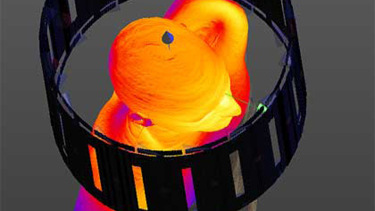Imaging

Sponsored by

Sponsored by

Overview
For more than 40 years, imaging strengths at Western and throughout London, Ontario have grown from cohesive efforts to connect groups, institutions and platforms across various disciplines. This has resulted in Canadian leadership and one of the top imaging complements in the world. Since 2010, the vast majority of these city-wide strengths have coalesced under the banner of the Biomedical Imaging Research Centre.
Key Research Initiatives
Biomedical Imaging Research Centre
Aiming to rank among the top five programs in the world, the Biomedical Imaging Research Centre is focused on the discovery and development of innovative imaging techniques and instrumentation to improve the understanding, diagnosis and treatment of human diseases. Work at the centre covers all major imaging modalities and biomedical applications, including cardiovascular, neurological, pediatric, musculoskeletal and oncology imaging, and image-guided surgery and basic science and engineering.
Centre for Functional Metabolic Mapping
The Centre for Functional and Metabolic Mapping at Western’s Robarts Research Institute houses Canada’s only collection of high-field (3T human) and ultra-high field (7T human and 9.4T animal) MR systems. The Centre is dedicated to establishing the anatomical, metabolic and functional characteristics of normal brain development and healthy aging across the lifespan. Work at the centre is also establishing the brain basis of developmental, neuropsychiatric and neurodegenerative deficits.
The Brain & Mind Institute
Recognized as an international leader, The Brain & Mind Institute provides a central, visible presence for cognitive neuroscience research at Western. Its primary functions are to promote research, facilitate training of highly qualified personnel and foster national and international collaborations in cognitive neuroscience. The institute's integrated approach to research is helping improve understandings of the neural bases of mental abilities, such as perception, memory, reasoning, language and more through such disciplines as psychology, linguistics, artificial intelligence, imaging, computational theory and philosophy.
Canadian Surgical Technologies & Advanced Robotics
Minimally invasive surgery (MIS) and robotics technologies have revolutionized a host of surgical approaches and promise superior patient outcomes, less trauma, faster recovery times and the opportunity to perform long-distance procedures. From developing regional brain cooling techniques to applying robot technologies for clinical use, researchers and clinicians at CSTAR are setting international standards for surgical technology, treatment innovation and minimally invasive patient care.
BrainsCAN
BrainsCAN is a neuroscience research initiative at Western aiming to transform the way brain diseases and disorders are understood, diagnosed and treated. Through innovative funding programs and core infrastructure, BrainsCAN accelerates effective solutions for maintaining a healthy brain. Funded by $66 million from the Canada First Research Excellence Fund, the initiative currently leads research efforts related to neurodegenerative conditions that include Alzheimer's, Parkinson's, Autism Spectrum Disorder, concussion, stroke and more.